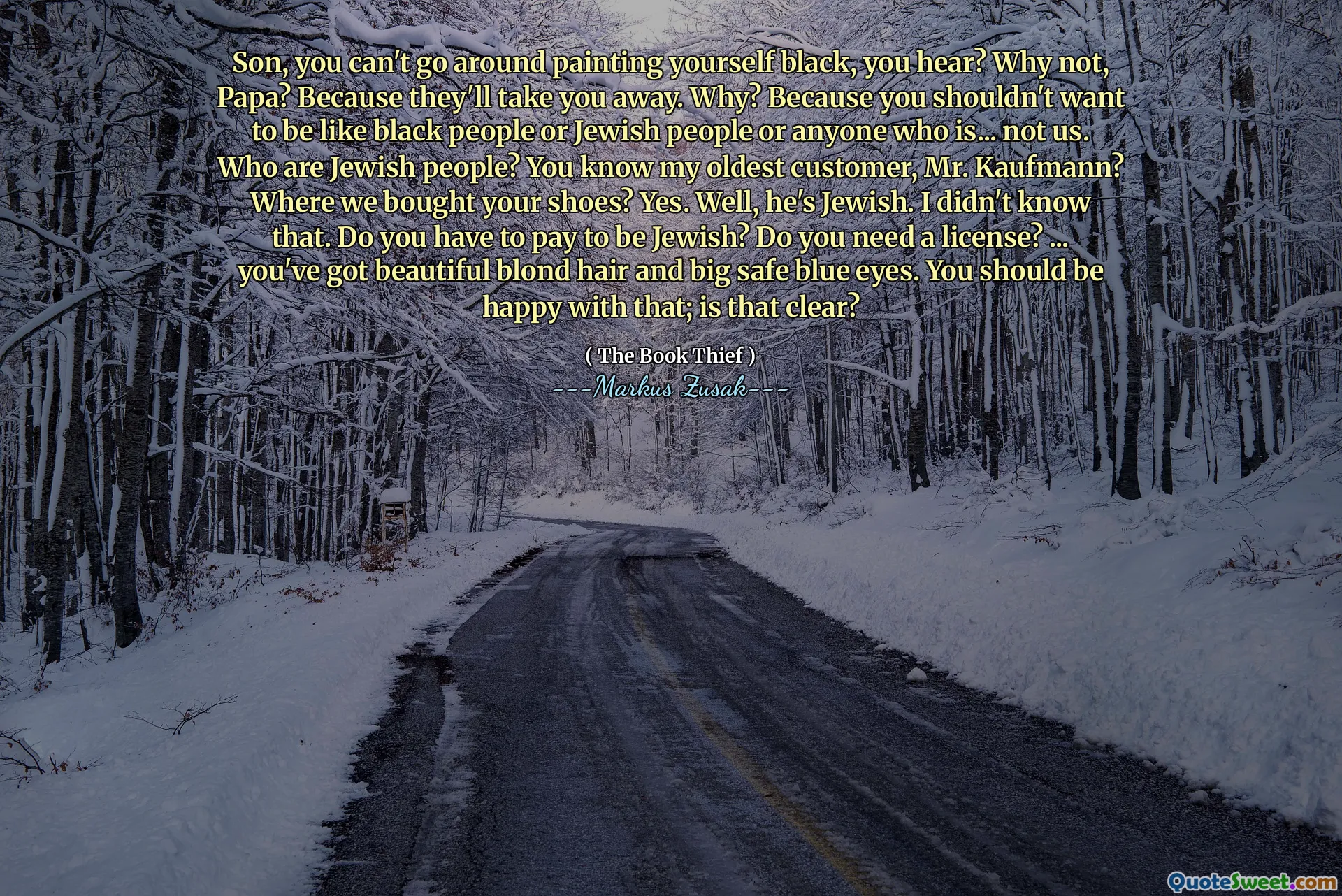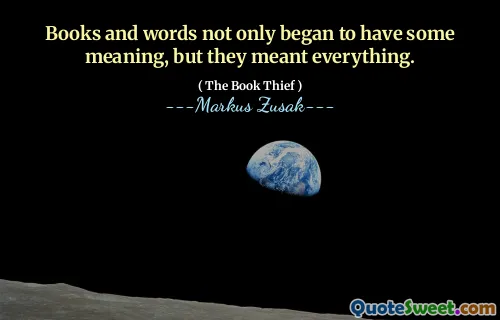
Son, you can't go around painting yourself black, you hear? Why not, Papa? Because they'll take you away. Why? Because you shouldn't want to be like black people or Jewish people or anyone who is... not us. Who are Jewish people? You know my oldest customer, Mr. Kaufmann? Where we bought your shoes? Yes. Well, he's Jewish. I didn't know that. Do you have to pay to be Jewish? Do you need a license? ... you've got beautiful blond hair and big safe blue eyes. You should be happy with that; is that clear?
This quote exposes the deeply rooted prejudices and societal divisions present during a period of pervasive discrimination. The child's innocent curiosity is met with the father's protective urge to conform to social norms, which currently equate being 'different'—whether by race or ethnicity—with danger or stigma. The father's insistence that the child shouldn't desire to resemble marginalized groups such as Black people or Jewish individuals stems from ingrained racist beliefs and a desire to shield his son from societal rejection or persecution.
The dialogue highlights the perpetuation of discrimination by framing it as protective rather than prejudiced. The child's questions about skin color and race reveal a natural innocence and curiosity, untainted by societal biases. However, the father's responses reveal a worldview shaped by fear, ignorance, and societal pressures.
This exchange reflects the importance of confronting prejudice and understanding its roots. It also subtly hints at how societal norms can influence even well-meaning individuals to internalize and propagate discriminatory beliefs. The final remark about the child's blond hair and blue eyes emphasizes the societal ideal of beauty and acceptance, suggesting that conforming to certain physical standards is necessary for safety and happiness.
Overall, this quote is a poignant reminder of how societal prejudices are passed down through generations, often cloaked in the guise of protection. It underscores the importance of fostering awareness, understanding, and acceptance to break the cycle of discrimination and help future generations see beyond superficial differences.
---Book: ( The Book Thief ) --- author: 'Markus Zusak' ---











